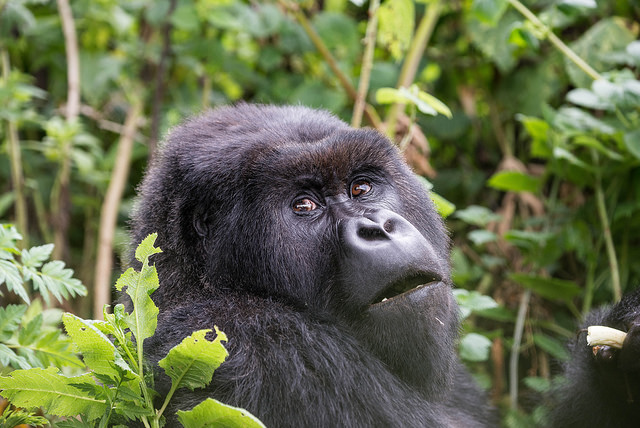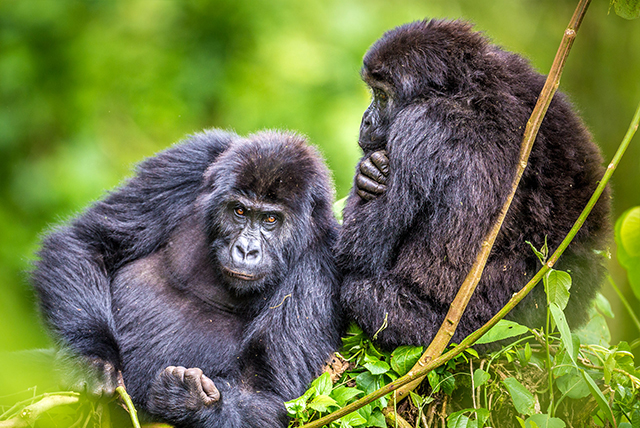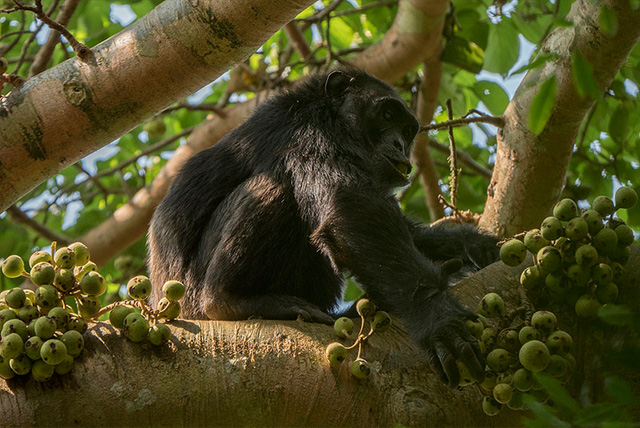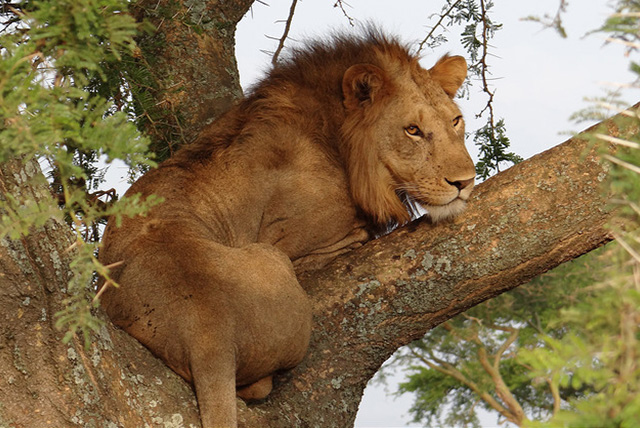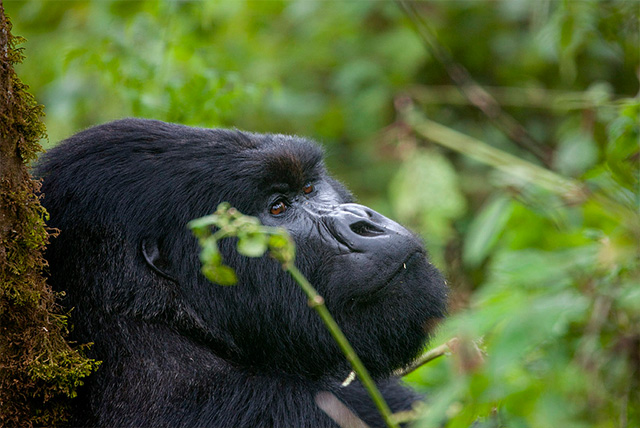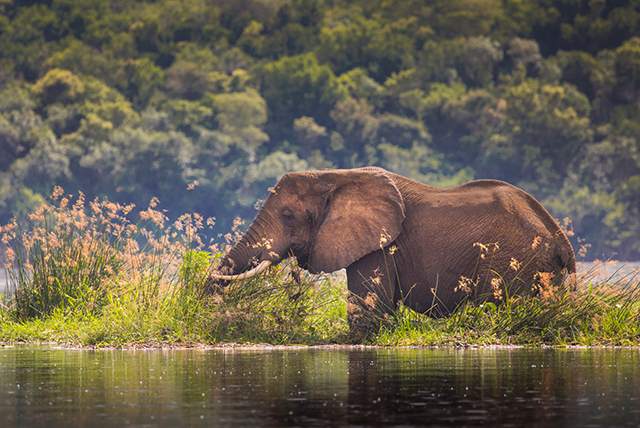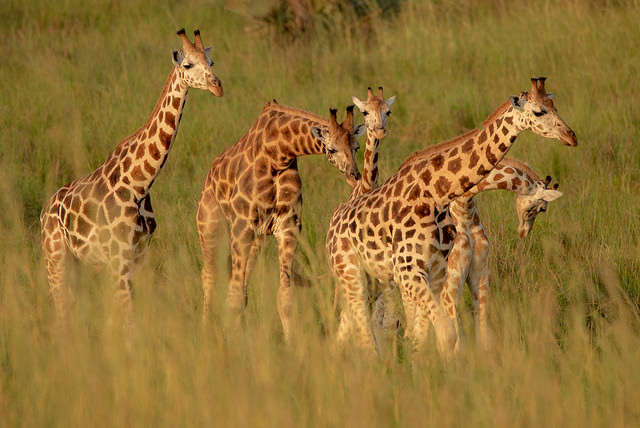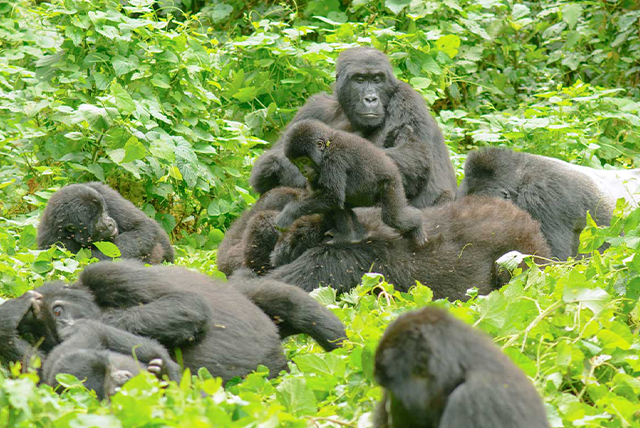Birding in Rwanda – Birding Safaris and tours
Rwanda has one of the highest bird counts on the continent despite being one of the smallest countries in Africa, at 26.338KMS. Include the high number of birding”specials” to be seen, and the primate experiences as a bonus, and its no wonder that most pundits rank it within the top five destinations for those seeking a rewarding birding experience.
Rwanda has at least 692 resident, visitors and occasional visiting bird species. An additional 5 locally extinct and another five are yet to be confirmed. This brings the total to a maximum of 702 species(Vande weghe,J.P&G. Vande weghe-2011 in press- Birds in Rwanda, RDB). And of these , there are atleast 12 birds known as Albertine Rift Endemics, a total higher than any country in Africa, other than DRC.
Landlocked and lying just south of the Equator, Rwanda has a diverse topography that has been shaped by the dynamics of one of Africa’s primary geological features, the Great Rift Valley. Tumultuous subterranean forces have over the last 50 million years contorted, raptured and seared the crust, giving rise to a hugely impressive array of volcanoes, lakes, mountain ranges and forests that define the landscapes of today. Collectively, they makeup the narrower and shorter Western Branch of the rift valley, or because Lake Albert is its first discernable feature, The Albertine Rift or Albertine Eco-Region.
The Albertine Eco-Region
Compromising a chain of mountains formed through upliftment and volcanic activity, the Albertine Eco-Region stretches across six countries and is regarded as the centre of the Afromontane habitat. It is also a belt of exceptional faunal and floral endemism: over 40 bird species, 34 mammals, 117 butterflies, 34 amphibians and 16 reptiles are to be found. It’s no wonder it’s the most celebrated destination of ecological importance.
Around Kigali
The Nyarutarama lake or “Lover’s Lake” bordering the Kigali Golf Course, is surrounded by a track which offers excellent nature walks and bird watching. This protected area covers 1460 kms with two lakes- Lake Mirayi in the south and Lake Rumira in the north. The wetlands are fed by the Nyabarongo River, a tributary of the nile, which empties into the Akagera River which in turn, flows into Lake Victoria.
RWANDA NATIONAL PARKS
| Species with restricted distribution , present in Rwanda | |||
| Common name | Scientific name | Endemism | Status |
| Handsome Francolin | Pternistis nobilis | Albertine Rift | Common |
| Ruwenzori Turaco | Gallirex Johnstoni | Albertine Rift | Common |
| Ruwenzori Nightjar | Caprimulgus ruwenzori | Albertine Rift | Common at dawn and dusk |
| Albertine Owlet | Glaucidium albertinum | Albertine Rift | Very rare |
| Dwarf Honeyguide | Indicator pumilio | Albertine Rift | Rare |
| Kivu Ground Thrush | Geokichla tanganjicae | Albertine Rift | Rare unpredictable |
| Red-throated Alethe | Pseudalethe poliophrys | Albertine Rift | Common |
| Archer’s Ground Robin | Dessornis archeri | Albertine Rift | Common |
| Red- Collared Babbler | Kuperornis rufocinctus | Albertine Rift | Common |
| Ruwenzori Apallis | Oreolais ruwenzori | Albertine Rift | Common |
| Mountain Masked Apalis | Apalis personata | Albertine Rift | Common |
| Grauer’s Swamp Warbler | Bradypterus graueri | Albertine Rift | Common, in high altitude marshes |
| Grauer’s Warbler | Graueria vitaata | Albertine Rift | Common, hard to see |
| Neuman’s Warbler | Hemitesia neumanni | Albertine Rift | Common, hard to see |
| Red-faced Woodland Warbler | Seicercus laetus | Albertine Rift | Common |
| Yellow-eyed Black Flycatcher | Melaenornis ardesiacus | Albertine Rift | Common |
| Ruwenzori Batis | Batis diops | Albertine Rift | Common |
| Stripe-breasted Tit | Parus fasciiventer | Albertine Rift | Common |
| Blue-headed Sunbird | Cyanomitra alinae | Albertine Rift | Common |
| Ruwenzori Double-Collared Sunbird | Cinnyris stuhlman | Albertine Rift | Common |
| Regal Sunbird | Cinnyris regius | Albertine Rift | Common |
| Rockefeller’s Sunbird | Cinnyris rockefelleri | Albertine Rift | Very rare |
| Purple-breasted Sunbird | Nectarinia purpureiventris | Albertine Rift | Common |
| Strange Weaver | Ploceus alienus | Albertine Rift | Common |
| Dusky Crimsonwing | Crystospiza jacksoni | Albertine Rift | Common |
| Shelley’s Crimsonwing | Cryptospiza shelleyi | Lake Victoria | Very rare |
| Congo Bay Owl | Phodilus prigoginei | Lake Victoria | To be confirmed |
| Papyrus Gonolek | Laniarius mufumbiri | Lake Victoria | Common, only in papyrus |
| Garruthers’s Cisticola | Cisticola carruthersi | Lake Victoria | Common, only in papyrus |
| White-winged Swamp Warbler | Bradypterus carpallis | Lake Victoria | Common, hard to see |
| Papyrus Yellow Warbler | Calamonastides gracilirostris | Lake Victoria | Rare, localized |
| Red- chested Sunbird | Cinnyris erythrocercus | Lake Victoria | Common |
| Papyrus Canary | Dendrospiza koliensis | Lake Victoria | Common, around papyrus |
| Brown-throated Weaver | Floceus castanops | Lake Victoria | Common |
| Red-faced Barbet | Lybius rubrifacies | Lake Victoria | Common |
| White-Collared Oliveback | Nesocharis ansorgei | Lake Victoria | Rare |
Volcanoes National Park
To the west lies the Volcanoes National Park, which protects the Rwandan portion of the Virunga Mountains , a Transfrontier Conservation Area that includes protected areas in Uganda and the DRC. Forming a complex of mostly dormant volcanoes, it includes Rwanda’s highest point, Mount Karisimbi(4507m), and the two active ones, Mount Nyiragongo and Mount Nyamuragira. While more famous for its mountain gorillas and other primates, Volcanoes boasts almost 165 bird species, with 17 Endemic to the area.
Nyungwe National Park
The Nyugwe National Park is a tropical mountain rainforest and one of Rwanda’s main protected areas, lies on the south- western slopes of the highland region that forms the great divide between the Congo and Nile drainage systems. The park protects one of the region’s largest and oldest remaining patches of montane rainforest and is home to 310 species of birds.
Amongst them are the Regal Sunbird(Cinnyris regius), Red Collared Babbler(Kuperornis rufocinctus), Rwenzori Turaco (Gallirex Johnstoni), Handsome Spurfowl( Pternistis nobilis), Rwenzori Batis(Batis diops), Grauer’s Swamp –Warbler(Bradypterus graueri), Blue-headed Sunbird, Cyanomitra oritis), possibly the rarest of all endemic birds would be the Albertine Owlet (Glaucidium albertinium) known from only five records in the area.
The Akagera National Park
The Akagera National Park in the northeast still covers a sizeable chunk of savannah. A mix of rolling savannah. A mix of roliing grassland interspersed with broad-leafed and acacia woodland, these lower lying lands are dissected by the Akagera River.
The sought after species here would be; Red faced Barbet(Lybius rubrifacies), Sousa’s Shrike ( Lanius souzae), White-Collared Oliveback ( Nesocharis ansorgei), amongst others. The park has a mosaic of wetlands and lakes, along the course of the Akagera River and the eastern boundary.
Amidst the papyrus and reed beds some of the prized species to be found are; Carruthers’s Cisticola( Cisticola carruthersi), Papyrus Canary( Serinus koliensis) and more.
Wetlands and Marshes
Rwanda’s wetlands and marshes, covering just over 10% of the country, include Rugezi, the fourth of the main protected areas, as well as the other two locations, Akanyaru Wetlands and Nyabarongo Wetlands, that have been declared Important Birding Areas (IBA’s) by Birdlife International.
If there’s still timeon the schedule, the keenest of birders can still head to a number of forest reserves scattered around the country.
‘Any serious birding expedition should incorporate both the wetter forested and more mountainous western regions, the drier savannas of the east and the many wetland sand marshes” Ian Michler; Safari Operator, Specialist Guide and Photojournalist.

